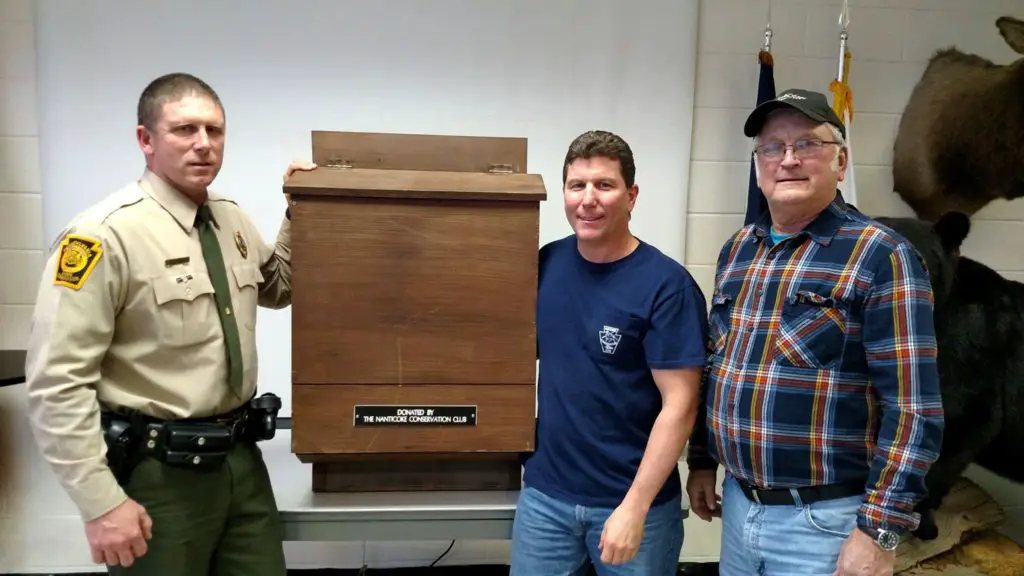 HARRISBURG, Pa. – Pennsylvania Game Commission biologists are seeking assistance from residents this summer in the Appalachian Bat Count, a statewide monitoring effort to collect bat maternity colony data. This monitoring is especially important due to bat mortalities caused by white-nose syndrome (WNS) throughout the eastern United States and Canada.
HARRISBURG, Pa. – Pennsylvania Game Commission biologists are seeking assistance from residents this summer in the Appalachian Bat Count, a statewide monitoring effort to collect bat maternity colony data. This monitoring is especially important due to bat mortalities caused by white-nose syndrome (WNS) throughout the eastern United States and Canada.
“WNS primarily kills during the winter, but the true impact of WNS on bat populations cannot be determined using estimates from winter hibernacula alone,” said Nate Zalik, a wildlife biologist for the Game Commission. “Pennsylvanians can help us more fully gauge the impact of WNS by conducting a bat count this summer. We are especially urging people who have previously conducted a bat count for the Game Commission to participate again this year. Sites monitored for many years are valuable in assessing bat population trends. However, we also are interested in receiving reports from new surveyors and sites, as identifying the location and size of colonies of WNS survivors is important.”
Information on how to participate can be found on the Game Commission’s website (www.pgc.pa.gov). Click on “Get Involved” under the “Information & Resources” tab, then click on “Appalachian Bat Count.” Forms on the website guide interested participants through the steps of timing, conducting a survey and submitting their findings to the Game Commission. Scout groups, 4-H clubs, local environmental organizations, and individual homeowners all can participate in this important effort.
“The little brown bat and the big brown bat are the two species that most often use buildings as their summer roosts,” Zalik said. “Abandoned houses, barns, church steeples, roosting structures constructed specifically for bats, and even currently occupied structures can provide a summer home to female bats and their young.”
Zalik noted that the fieldwork isn’t difficult to do, and Pennsylvanians can play a huge role in helping the Game Commission get a better understanding of what is happening to bats this summer.
“We’re looking for some help, and we hope you’ll consider becoming part of the Appalachian Bat Count monitoring team,” Zalik said. “It’s a chance to make a difference for bats and to get involved in assessing the impact of WNS. Please consider lending a hand. Bats need you more than ever.”
For more information on WNS, visit the Game Commission’s website (www.pgc.pa.gov) and click on “Wildlife-related Diseases” under the “Wildlife” tab, then click on “White-Nose Syndrome”.
Copyright © 2024 EYT Media Group, Inc. All rights reserved. Any copying, redistribution or retransmission of the contents of this service without the express written consent of EYT Media Group, Inc. is expressly prohibited.








